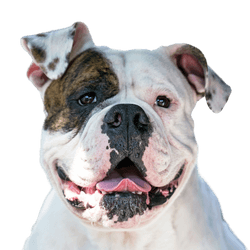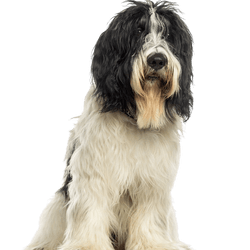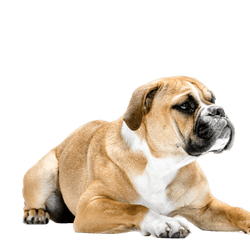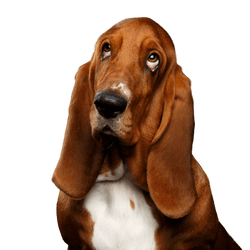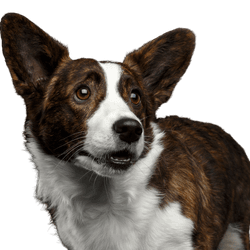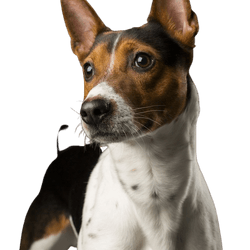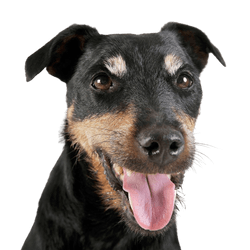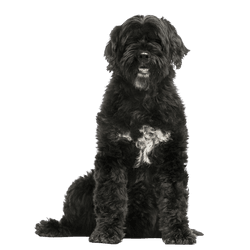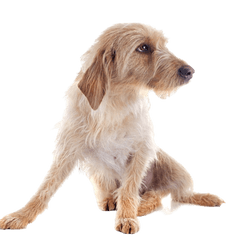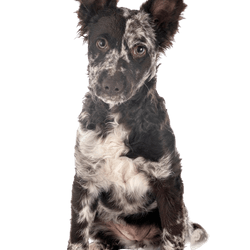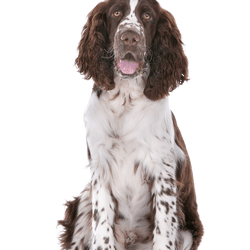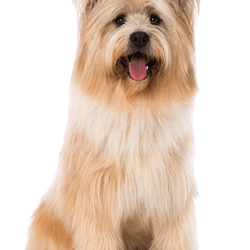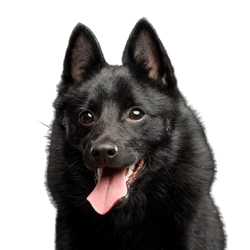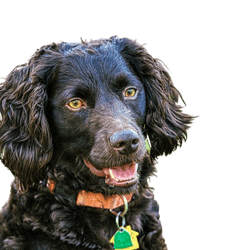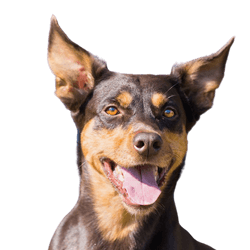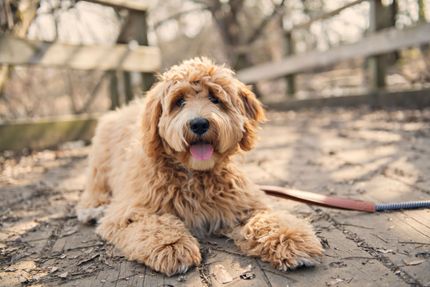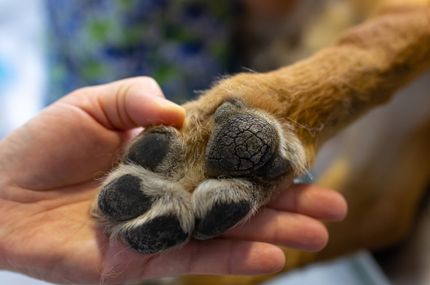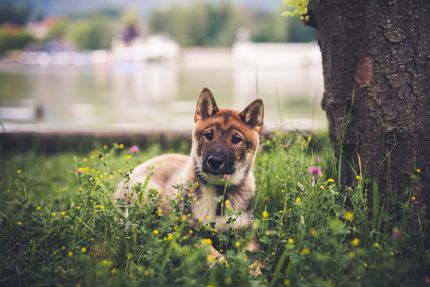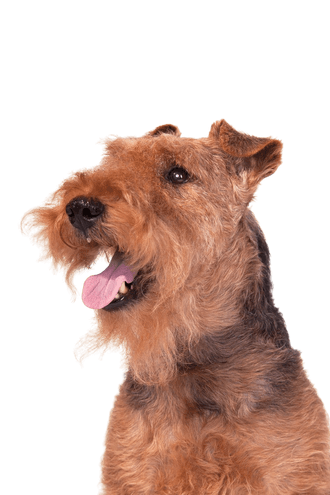
Welsh terrier Breed description: Character & Co
Welsh terrier
Facts & Origin
What is the origin of the Welsh Terrier?
The Welsh Terrier originates from Wales. Its origins go back to the 10th century. At that time he was called Black and Tan Terrier and was spread all over the British Isles. When the Romans came, the Celts retreated into the valleys and mountains of Wales. For centuries they lived there isolated. The terrier's main job was to accompany its owner when hunting foxes, otters and badgers. Skilled and agile, the agile terrier drove the foxes out of their den. Breeding was purely for performance. Not until the 19th century did the first breeders strive for an independent breed type. The first Welsh Terrier Club was founded in 1886. The breed standard, which was established at that time, has remained almost unchanged ever since. In 1954 the breed was recognized by the FCI.
What are the breed characteristics of Welsh Terriers?
The Welsh Terrier is listed in the FCI in Group 3, Section 1 with the standard number 78.
Although originally bred as a pure hunting dog, it is now mostly kept as a family and companion dog. The medium sized Terrier is rarely used for hunting. All the more often you will meet it at dog parks, where he trains with his owner for various dog sports. When jogging, cycling or riding the small Welsh Terrier is an ideal companion.
Welsh Terriers are spirited and ready for any adventure.
Welsh Terriers are not listed dogs.
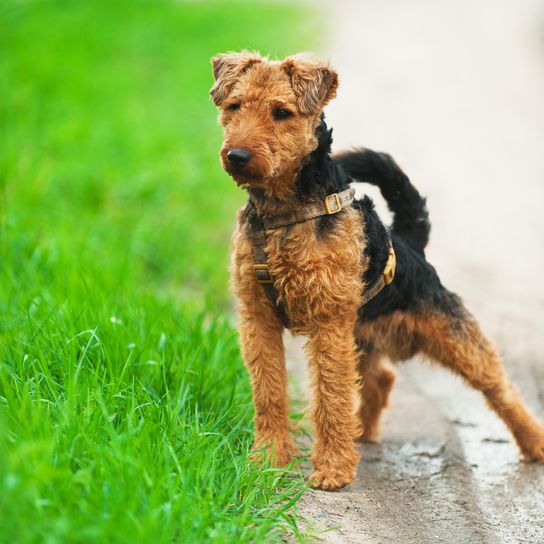
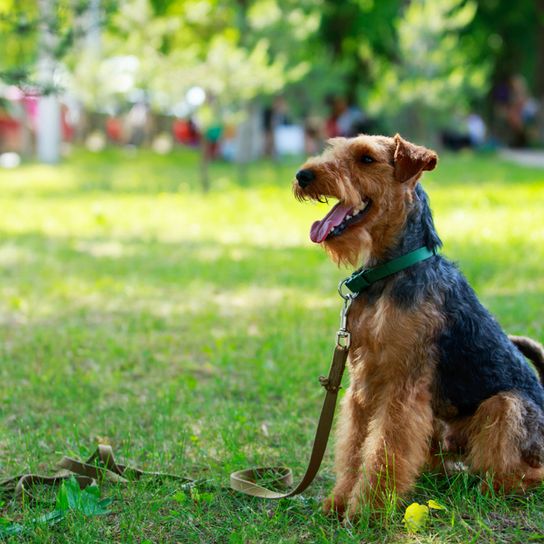
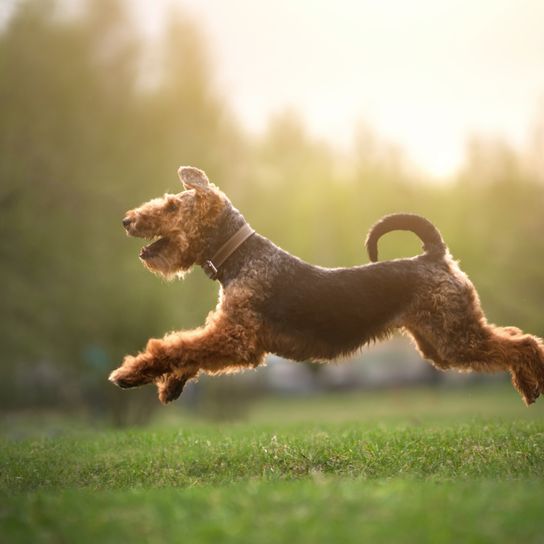
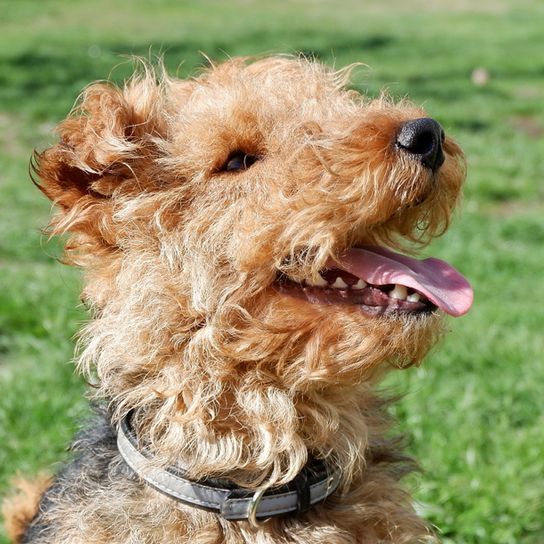
| Alternate Name | - |
| Origin | UK |
| Life expectancy | 12 - 15 years |
| Care requirements | high-maintenance |
| Activity level | average |
| FCI group | Large and medium sized Terriers |
| AKC group | not recognised |
| KC group | not recognised |
Welsh terrier mixes
Attitude, character and temperament of the breed
What are typical character traits of Welsh Terriers?
- intelligent
- active
- obedient
- skilful
- agile
- friendly
- affectionate
Welsh Terriers are small bundles of energy, nevertheless calm and never aggressive. They build a close relationship with their caregiver. It is now up to you to respect, appreciate and guide your dog's personality. Never underestimate the strong personality of your terrier. It will be loyal to you, an obedient companion in all circumstances, if you manage to earn his respect. After your Welsh Terrier puppy has moved in, you will begin to train it in a loving but consistent manner. The little guy needs clear instructions and boundaries right from the start. Once it understands this, a Welsh Terrier is easy to train. As a beginner you should visit a good puppy school.
Your terrier will be eager to learn and to work, but in return he will expect to be kept busy and to get plenty of exercise. Just a quick walk is not enough for the temperament bundle, it must be a big round. You should always keep in mind that your four-legged friend is a hunting dog. Is your pelt-nose so well trained that he can resist the temptation of a fresh hare track? If not, keep it on a leash in areas with lots of game.
Your Welsh Terrier loves a challenge, whether it's dog sports or search games at home. Your Welsh Terrier does not like to be left alone for long periods of time or boredom. If you want to buy a Welsh Terrier, please remember that it is a dog for active people.
It has no special demands on the attitude. Optimal would be a property, with sufficient occupation and run he gets along also with apartment attitude. The Welsh Terrier gets along well with children, it is always ready for fun and games.
Character
Usage

Health and breeding information
What are typical diseases of Welsh Terriers?
Welsh Terriers are healthy and robust dogs.
Genetically, some animals are prone to glaucoma, which can lead to blindness if not treated.
Welsh Terrier breeding - where, how, what?
The Welsh Terrier is looked after by the Klub für Terrier e.V. von 1894, Club for Terriers.
Here you can learn everything about the breed standard, have access to the breeder list and find contact persons for all questions concerning breeding and keeping of the Welsh Terrier.
The Club for Terriers has made it its business to preserve the original breed characteristics of the Welsh. Mass breeding and fads are to be avoided.
The breeding animals are carefully selected and must undergo various examinations and genetic tests.
A Welsh Terrier should be used to other pets from puppyhood. With a good breeder, Welsh Terrier puppies get to know other animals from the beginning.
If you want to help a Welsh Terrier in need, ask beforehand how its behaviour towards other animals is. Often such animals come from a bad home or are not well socialized.
If you want to buy a Welsh Terrier, you will surely find a breeder here who has Welsh Terriers for sale. On the website you will find the category, Welsh Terrier in Need, maybe there is a Welsh Terrier for sale.


Appearance and coat of the Welsh Terrier
Welsh Terriers have a distinctive appearance. The dark saddle on the otherwise light-colored dog is typical. Small, dark beady eyes that look expectantly into the world and a luxuriant beard dominate the face. A Welsh wears its ears folded forward and the tail stands erect.
The coat is wiry and dense, with plenty of undercoat, the so-called "English jacket".
Colours:
- black with tan
- black-grey (grizzle) with tan
Your Welsh Terrier needs to be trimmed 3 to 4 times a year. Otherwise it is sufficient to brush the coat from time to time.
How big does a Welsh Terrier grow?
Welsh Terriers grow to a height of 36 to 39 cm.
How much does a Welsh Terrier weigh?
Your dog weighs between 9 and 9.5 kg.
How old does a Welsh Terrier get?
Your friend will be with you for 12 to 15 years.
| Fur length | medium |
| Fur | curly |
| Ear shape | Tilt-ear |
| Tail | short |
| Anatomy | rugged |
| Size ♀ | 36 - 39 cm |
| Weight ♀ | 9 - 10 kg |
| Size ♂ | 36 - 39 cm |
| Weight ♂ | 9 - 10 kg |
| Suitable For | - |
Colors

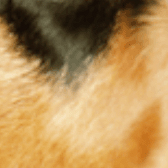
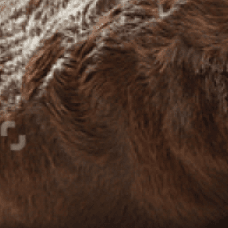
Known Diseases
Eye diseases
Often occur with allergies and intolerances.
Other medium dogs
Useful Articles
You can find articles that might interest you in the dogbible blog to match your favorite breed.
Visit our magazineto stay up to date on dog trends.
To find out more, view our Privacy Policy
Find here the breed that suits you and find out what character traits it has. Here you can also learn more about the origin, size and weight of your favorite breeds.
Matching your favorite breed, you'll find articles that might interest you on the dogbible dog blog.
KONG for the dog - the allround toy
Anal gland inflammation - causes, symptoms, diagnosis, prevention and treatment.


